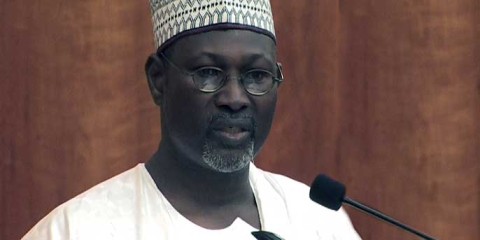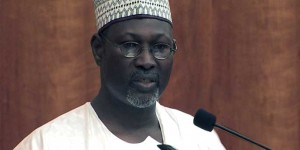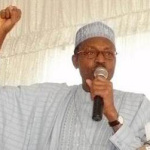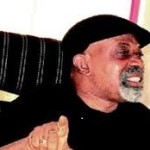Still On INEC Time Table by Adewale Kupoluyi
Articles/Opinion Friday, January 31st, 2014
In what could be described as the formal commencement of electoral activities for the forthcoming general elections and in line with the provisions of the 1999 Constitution (as amended) as well as the Electoral Act 2010 (as amended), the Independent National Electoral Commission has released the time table, which is now generating one controversy or the other because of the scheduling. Series of events have been lined-up such that February 14, 2015 has been fixed as the date for presidential and National Assembly elections, while February 28, 2015 has been set aside for governorship and state houses of assembly elections.
The contending issues border on some points that deserve to be examined. In the first instance, with the scheduling of the presidential election ahead of governorship and state houses of assembly, many observers believe that this is nothing but a deliberate plot by INEC to hoodwink Nigerians into voting for a President that is not their choice. It has been argued that the governorship election is very important and should rather come before the presidential election so that people would not be encumbered to vote for whoever they wished as president.
Secondly, the dates for the presidential and governorship elections are not too far from the date of inauguration, which is supposed to be on May 29, 2015. By this date, all election petitions and litigations are expected to have been concluded. If there are rerun elections, those elections can only be conducted in March, given the litigation period. If these lapses are not tackled, it could mean that those elected wrongly would have fed fat on our collective wealth before being kicked-out of office. Unless INEC is so certain that its logistics will be so efficient as to assure that the president and all governors would emerge after the first ballot, it may be necessary to review this timeframe to avoid any possible mix-up that may erupt in the event that whoever become president and governors are not determined in the first ballot.
Thirdly, the inability of INEC to announce specific dates for campaigns as well as the dates for primaries and submission of party candidates is not helpful because the release of the timetable by INEC would ordinarily spur politicians into starting vigorous campaign activities. Adversely, this will take its toll on governance in the sense that many public officials would jettison serious governance and look for every means to amass wealth, to get re-elected. With the released timetable, there should ordinarily be no reasons to fret about scheduling of elections in the country but our experience in the past, prevailing high incidence of corruption, tribalism and the unbridled desperation by politicians to get into power should give us the basis to do a flashback.
In 1979, the governorship election was held first on July 28 followed by the presidential polls on August 11 but in 1983, the controversial ‘bandwagon effect’ was introduced into the nation’s political history when the presidential election was conducted first on August 6 while governorship polls came up a week after on August 13. The elections were the most bloodiest because it was characterized by widespread rigging; an excuse the military cited as the justification to wrestle power from the civilians. On the return of the country to civil rule in 1999, local council elections were held on December 5, 1998, which was followed by the governorship on January 9, 1999 and the presidential election on February 27, 1999 while in 2003, there was a marked departure from the two patterns that already existed. In this case, the gubernatorial and presidential elections were held on the same day and time, which was on April 19. In 2007, governorship and state assembly elections were held first on April 14, while the presidential and National Assembly elections were held on April 21. In 2011, the presidential polls were held on April 16 while the governorship election took place on April 26.
Which option is therefore suggested under the current dispensation? Going by our past experiences, holding of the presidential election ahead of the governorship is likely to sway other elections in favour of the political party that controls the central government at the expense of other parties. The second option of holding all the elections on the same day is capable of causing chaos for INEC, in terms of logistics. The third alternative of holding both the governorship and state houses of assembly before the presidential and National Assembly elections seems more acceptable to many Nigerians. INEC should toe this line by revisiting the time table.
This fear is borne out of past experience whereby whosoever is elected as president influences other levels of elections in the country. This was the point raised by many people, including the Kano State Governor, Rabiu Kwankwaso, when he accused the Presidency of influencing the electoral umpire to fix the presidential election first, so as to create a ‘bandwagon effect’ in subsequent elections in favour of the ruling party. If and when this is done, it will address the problem of ‘bandwagon effect’ and voting for the wrong presidential candidate. The Bandwagon Effect in this case occurs where some people vote for those candidates or parties that are likely to succeed.
I think we should be sincere with ourselves by realizing that with the kind of presidential system that we practice in Nigeria, it will be absolutely difficult to draw a clear line between what the Presidency wants and the shape of things to come at all levels of our polity. It is the outcome of the presidential election that will invariably determine the fate of other elections. That is why the opposition parties believe – rightly or wrongly – that staggered elections in the past had only succeeded in causing further electoral crises because of its ‘bandwagon effect’ and manipulation by any government in power.
The Attahiru Jega-led electoral umpire should go the extra length to convince Nigerians that it is capable of conducting credible elections. This is necessary going by the several knocks received for the conduct of the last Anambra governorship poll. INEC should strive to faithfully implement the timetable when it is eventually reviewed, taking into cognizance the critical issue of spacing the polls such that adequate logistics are made for any possible runoff that may arise either in governorship or presidential elections. This will not only ensure that free and fair elections are transparently conducted, it will equally allow for the emergence of right candidates that would give purposeful leadership that the nation seriously desires.
Kupoluyi writes from the Federal University of Agriculture, Abeokuta, vide, adewalekupoluyi@yahoo.co.uk, Twitter, @AdewaleKupoluyi
Related Posts
Short URL: https://www.africanexaminer.com/?p=7854























